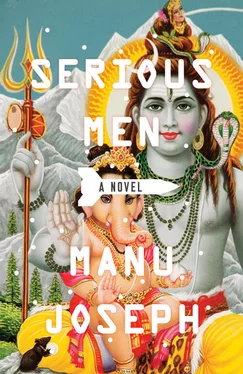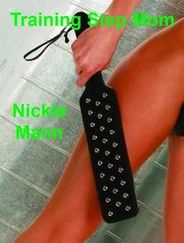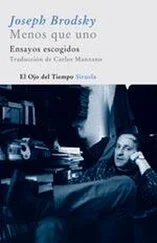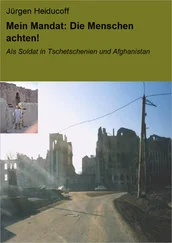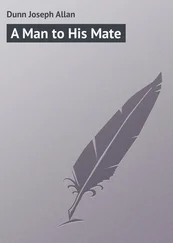She ran up two flights of stairs from the basement, humming a tune she could not recall hearing for the first time. She took in the breeze at the porch and the smell of the moist grass and wet earth. A gardener, who somehow did not look naked in just his underwear, was watering the main lawn. She made her way to the canteen: a gracious room with bare wooden tables and metal folding chairs, and large square windows that opened out to the undulating backyard. Here, the sound of the sea was another form of silence. Waiters in dark-brown shirts and trousers were emerging from an inner door carrying plates on their forearms and palms, or were just standing still at various points in the canteen.
She saw Nambodri huddled together with four other radio astronomers whose names she had forgotten. He was speaking into his mobile and the others were looking at him keenly. One of them, a bald man with quivering spectacles on his nose-bridge, reminded her of a college professor who had once asked her in his cabin, ‘Do you respect me?’
Nambodri put the phone in his shirt pocket and said in a soft, serious way, ‘Not today, But he is going to get it soon.’
‘I’m thinking of taking an off this week,’ one man said. ‘He is going to go crazy.’
‘No,’ Nambodri said calmly. ‘We are all going to be there. It’s very important that we are all there.’
‘Look, I’ve had a bypass. I can’t handle these things.’
‘It’s going to be very good for your heart,’ Nambodri said.
He spotted Oparna, and a smile appeared on his face. He pointed to an empty chair beside him. In his shadowy conference, he did not mind the sudden fragrance of lemon. She was a relief in this asylum. These days, his neat foreign shirts and corduroy trousers and stylish silver hair had found a meaningful audience. She saved him from the banality of the academic society: those austere men and grotesque hairy women he usually met on the circuit. He had this affliction to be with the youth, the real fragrant waxed youth. Before Oparna came along, his only recourse was the parties thrown by his unscientific friends where young girls gathered around him when they heard he was a radio astronomer. He loved it when their delicate bodies, so slight, stood close to him, their legs so naked, their vodka eyes asking him what exactly he did, and their intelligent nods of incomprehension. He began with astronomy and told them what jazz was and in a naughty way made fun of Bryan Adams. He would search their pretty faces for one-minute crushes. He loved the young and spoke to them in their language.
Oparna suspected as much. He was the sort of man who would say to his son, ‘I am a friend, not a father,’ and then give the boy a condom when he turned eighteen. A waiter brought her usual glass of tea and stared hard as he pushed a sugar jar on the table towards her.
‘Nice earrings,’ Nambodri said, ‘You don’t wear long earrings very often. What’s special today?’
‘Nothing is special.’
‘You need clearance from the old man for another microscope?’
One of the astronomers chuckled. Oparna made a sound that she was certain would pass off as a sporting laugh.
She knew there was a lot of pent-up resentment in these men because they could not accept that something like Astrobiology had become a bustling department in this temple of physics while the Search for Extraterrestrial Intelligence was not allowed to be even a parenthesis in radio astronomy.
Her mobile rang, and she was grateful for that. The voice of Ayyan Mani said, ‘Sir wants to see you right now.’ She looked at her phone, somewhat confused. She had not given her number to anyone.
Oparna burst into the anteroom and felt the full stab of Ayyan’s calm scrutiny. She was wary of this dark man with his wide eyes.
‘We’ve been searching for you,’ he said, ‘He is waiting.’
As she passed by his table, he studied her back. He was certain the men in this institute of excellence did not know her at all. They were all deformed. Too much education; too much class. They looked at a woman through the charades she created around her, through what she said and how she spoke, and her degrees. And through the many myths of modernity that men and women erected when they were fully clothed. But the bed is medieval, and honest, and in it he wanted to believe Oparna would be something else. She would understand it if a man slapped her in the urgency of love, or to destroy her arrogance. He saw in her the unmistakable insanity of formidable women who longed to crumble. Then the thoughts of Oparna vanished and the excitement of what was to happen next morning filled him. A shudder ran through him. He felt a cold fear in his tongue.
She pushed open the inner door and felt the same odd mixture of cold air and anticipation she felt every time she entered. Meeting Acharya was still an event, though he never did anything to make it an occasion. He was sitting behind his massive tumultuous desk. As always, his pink bald head that was now bent over something on his lap appeared larger than she had expected. She sat across the table and murmured, ‘I am here.’ He did not look up. It was a convenient moment for her to observe him carefully. Big ears, she thought, and his hand that rested loosely on the table was clean and brutal. She wondered, once again that day, how he might have looked when he was young. The archive pictures on the net were not good enough. And the vacant walls of his room frustrated her. There was not a trace of him here. A young sepia Acharya glaring from the wall might have been entertaining.
All through her brief struggle in the Institute, the infatuations of strange men and the malice of others, and some who were afflicted by both, working with Acharya had a calming effect on her. Their conversations were dry, chiefly about equipment purchases and setting up the lab. But there was something about being in his presence that she liked. He was a shelter. In his shade, she felt absolutely ignored. She had craved that always, from the uncles who used to touch her when they came home for the family dinner, from the boys outside her house who used to play cricket, and all the men who came her way. Finally, here was a man who did not notice her. It was like being in the dark corner of a theatre and watching a good play.
Acharya licked his finger hungrily and turned a page. He was reading a graphic novel which lay furtively on his lap. It was part of a series called Topolov’s Superman, once an underground rage. It was Russia’s investment in popular culture during the Cold War days. In Topolov’s Superman, the man of steel was perceived by ordinary people as a superhero, but in reality he was a vain horny villain from whom two KGB agents constantly saved the world. Acharya licked his finger again and turned the page.
Clark Kent is walking down a deserted cobbled street in Prague. It’s a cold gloomy morning. He sees a beautiful girl in a short skirt walk by. ‘Look at this piece of work. I can have this right now. I am Superman,’ Kent says. He follows her. She walks into a small deserted lane. Kent turns into a whirlwind and becomes Superman. He blocks her path.
‘Superman,’ she says excitedly.
‘Can I take you for a spin, honey?’ he says.
‘Er … sorry … my aunt is ill. I have to go now. But what a lovely surprise. And what are you doing here talking to me? Don’t you have a world to save, Superman?’ She walks away waving goodbye. But when she turns, he is there in front of her, blocking her path again.
‘Are you sure you don’t want anything, honey?’
The girl looks confused, but before she can react, Superman strips her naked and laughs. She screams as he flings her on the sidewalk and takes off his cape and tries to extricate himself from the tunic.
Читать дальше
